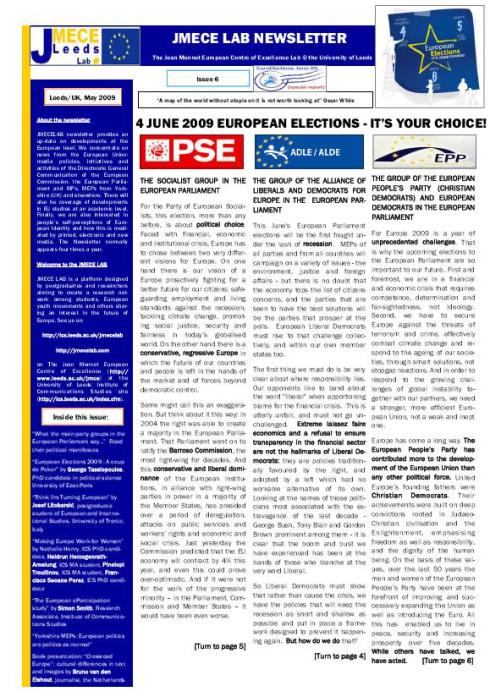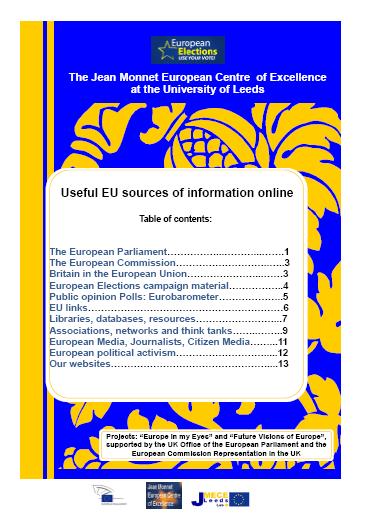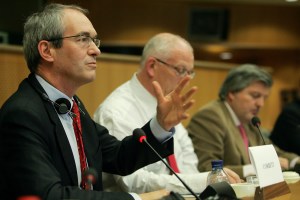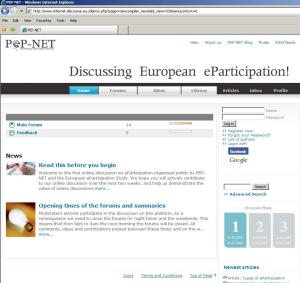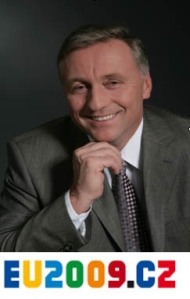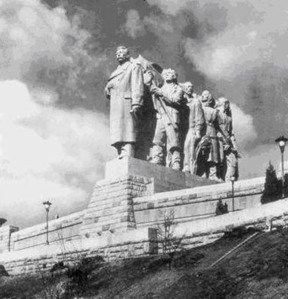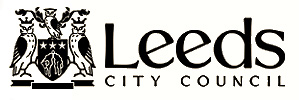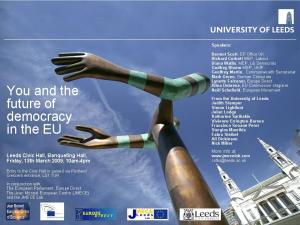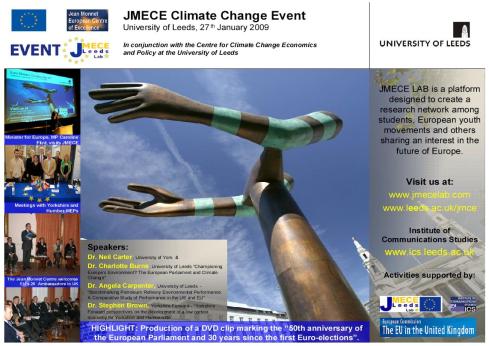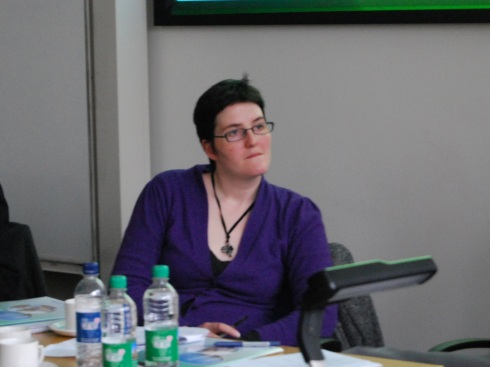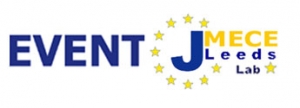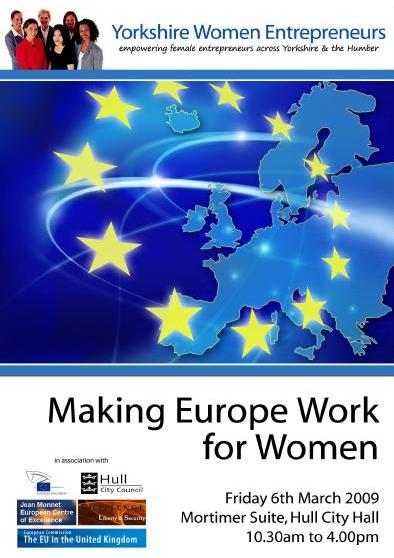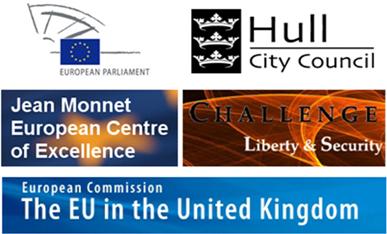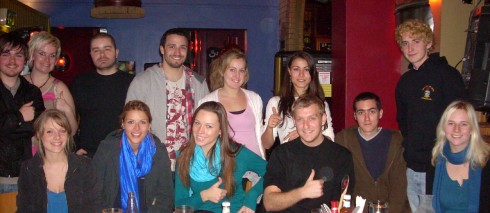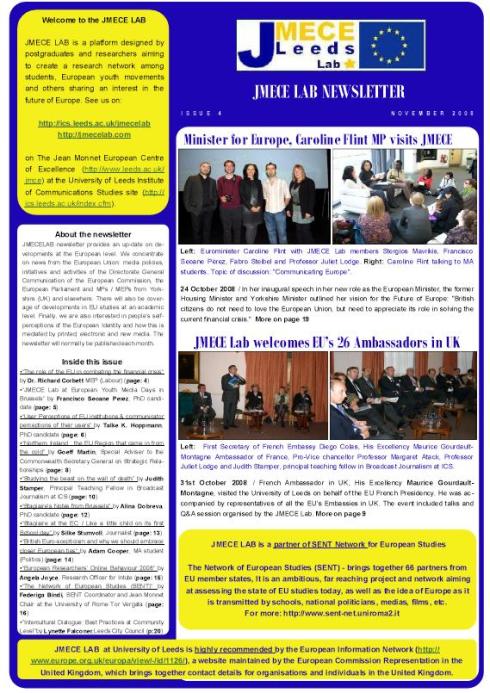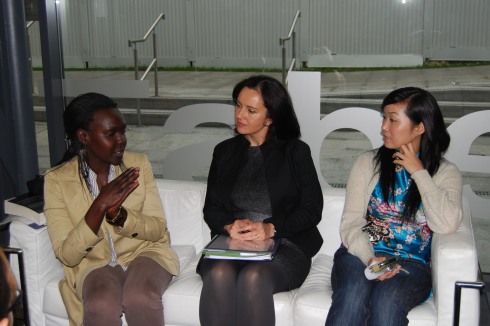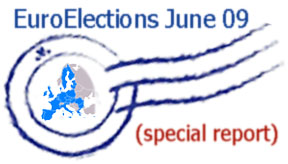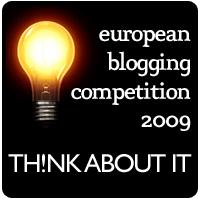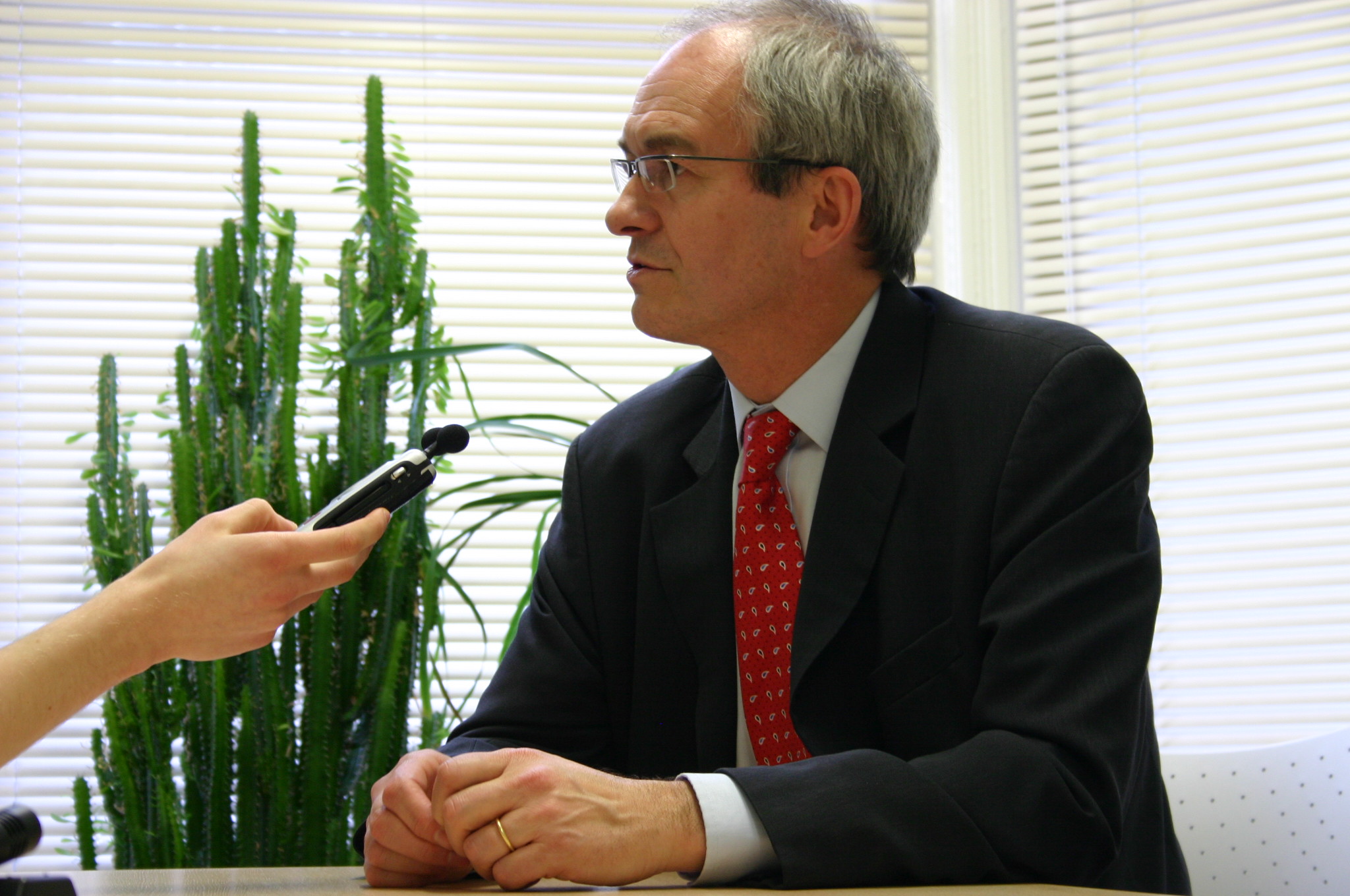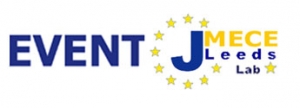
Yorkshire MEPs: European politics are politics as normal
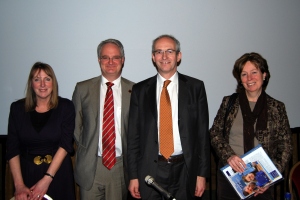
ICS Prof Juliet Lodge, Dr Richard Corbett, MEP Labour, Diana Wallis, MEP Liberal Democrat and Mark Green, Honorary German Consul at the Conference "You and the future of democracy in the EU"
Why bother voting in the next European elections? Two Yorkshire MEPs offered the following arguments at a conference on the future of EU democracy held in Leeds on Friday, 13 March 2009: First, because the European Parliament is the institution that democratically controls policies related to issues like climate change and the current economic crisis, which cannot be dealt with by individual countries alone. Second, because the European chamber offers real political options where members decide in accordance with their ideological positions, irrespective of their country of origin.
This was the rationale offered by Yorkshire MEPs Richard Corbett (Labour) and Diana Wallis (Liberal Democrat) at a public event at the Leeds Civic Hall focused on the practical implications of European politics for the younger generation. Participants included university and local secondary school students, who viewed the first screening of a student-produced DVD “Do it like a European?” about the importance of voting in the June 4th European Parliament elections.
This conference, celebrating 30 years of the first elections to the European Parliament, ended with a cautionary tale : if you do not vote, you let someone else choose for you. Whom they choose will affect policy priorities and outcomes. If you do not vote, you open the door to less democratic or extremist elements, a real possibility in Yorkshire.
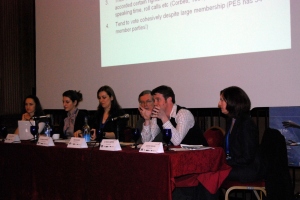
Panel 4: European Union from the citizen's perspective: Dr Alina Dobreva (researcher), Christina Michael (journalist), Dr Katharine Sarikakis (ICS Senior Lecturer), Neill Schofield (European Movement), Dr Simon Lightfoot (Senior Lecturer in European Politics) and Lynette Falconer (Leeds Europe Direct)
Invited to speak at a round-table organised by the Jean Monnet European Centre of Excellence (JMECE) and the JMECE Lab at the University of Leeds, one of the Labour MEPs for the Yorkshire and the Humber region, Dr Richard Corbett, said the European Parliament could be seen as a democratic response to one of the biggest challenges posed by economic globalisation: How to take decisions beyond the nation-state. “Rather than having diplomats make decisions for us, we have elected representatives who decide on issues that European countries cannot deal with on their own, as in the case of climate change”, said Dr Corbett.
Besides, decisions at the European Parliament are contested among political groups that divide ideologically, as in any other parliament, rather than by the nationality of their members. “A Swede Green MEP has much more in common with a French Green MEP than with a Swede Conservative MEP”, argued Dr Corbett.
“The European Parliament”, he said, “is about real political choices. In the end, you have to choose between those who want a regulated common market, and those who want a free-for-all market with few protections for consumers.”
The Labour MEP also warned about the risk of the region electing a BNP member for the European Parliament. It would be a shame for the UK, he said, to endow a fascist politician with all the extra legitimacy and the resources of European parliamentary representation.
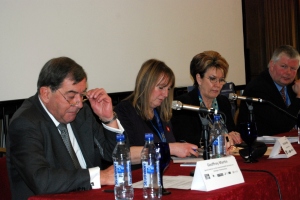
Panel 2: Communicating Europe? Geoffrey Martin (Special adviser to the Commonwealth Secretary on Strategic Relationships), ICS Prof Juliet Lodge, Judith Stamper (Principal Teaching Fellow in Broadcast Journalism) and DCI Dave Fortune
Diana Wallis, the Liberal Democrat MEP for the Yorkshire and the Humber region illustrated how political choices are reflected in the European Parliament. She reflected on the ideological division between environmental “purists”, who oppose the use of any fossil fuels for producing energy, and those who, like her, would like to reach clean energy production “bit by bit”, allowing coal-reliant regions like Yorkshire to engage in low-emission energy projects like those related to carbon capture and storage. “Europe is about politics as normal”, Wallis remarked, “the sort of politicians you get into Europe, the sort of politics you’ll get out.” She argued that the current economic crisis, along with the challenges of climate change, may offer a good opportunity for the EU to show its relevance in this borderless world. “What we need is leadership” she said. “If you elect politicians who are isolationists, you won’t get the achievements of the past few years.”
Tomorrow’s EU: More participatory, but never a fully-fledged federation
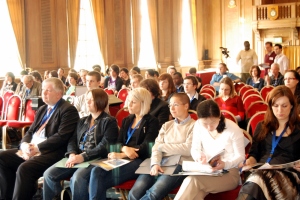
The DVD screened at the event, titled “Do it like a European?” was conceived by the JMECE Lab and written, produced, shot and edited by students from the Institute of Communications Studies and the JMECE . The film will be soon available on line. So, stay tuned.
In response to questions from the public, the two Yorkshire MEPs gave their opinion on the proposals for a more participatory democracy, and about the prospects of the EU becoming the United States of Europe. Diana Wallis said: “We need to spend time reassessing representative democracy, which I think it is partially broke. It was devised for the age of the horse and the cart, when your representative would go to the parliament and then would report back. We live in a different world now. The politician is in need of the help of citizens.” She supported the idea of the European Citizens Initiative, a proposal to grant citizens the right to set off the legislative process if they manage to get a million signatures from across the EU member states. Having citizens from all over Europe supporting a legislative proposal should be the closest thing to a “European demos”, she said, as there would be citizens from different states collaborating in a common goal.
Dr Corbett was more sceptical. Dr Corbett said the EU faced “a problem of space”: “European institutions are inevitably and unavoidably more distant, that’s why you should not take to the EU level issues that can be solved at the local or national level.” He argued that good ideas don’t need one million signatures to get into the EU policy-making process. There are other channels, like the MEPs themselves or the European Parliament’s Petitions Committee, to listen to citizens’ demands, said Dr Corbett.
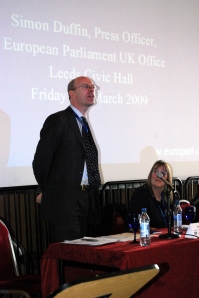
Simon Duffin, Press Officer of the UK Office of the European Parliament talking about "The European Parliament in perspective"
As for the EU becoming the United States of this side of the Atlantic, Diana Wallis warned “we should not try to imitate the USA, because we are different.” In her view, the idea of a federal union is “passé and old fashioned” and has already been “thrown away”.
Dr Corbett said in a humorous way that the EU is “a Europe of States who are sometimes united, so up to a point we already have a United States of Europe.” As the former president of the Young European Federalists, Dr Corbett said he had never been afraid of using the word “federal”, as “a federation is about having different levels of government, being as decentralised as possible, and centralised only when necessary.” He said the idea of a federation conveyed, thanks in part to the British mass media, the image of a highly centralised state. He argued that although the EU already has federal characteristics epitomized by the European Court of Justice, it was unlikely ever to become “a fully-fledged federation”.
The conference, titled “You and the Future of Democracy in Europe”, was organised by the Jean Monnet European Centre of Excellence (JMECE) and the JMECE Lab at the University of Leeds in conjunction with the UK Office of the European Parliament, the Europe Direct Centre in Leeds, and Leeds City Council.
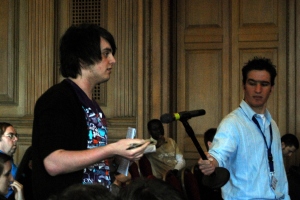
In response to questions from the public, the two Yorkshire MEPs gave their opinion on the proposals for a more participatory democracy, and about the prospects of the EU becoming the United States of Europe.
The event included talks by Professor Juliet Lodge, Director of the JMECE; Simon Duffin, Head of Media at the UK Office of the European Parliament; Judith Stamper, Teaching Fellow in Broadcast Journalism at the Institute of Communications Studies, University of Leeds; Geoffrey Martin, Special Adviser to the Commonwealth Secretary on Strategic Relationships; Dave Fortune, Chief Inspector, Police Forces of Yorkshire; Mark Green, Honorary German Consul in the Yorkshire region; Dr Simon Lightfoot, Department of Politics, University of Leeds; Lynette Falconer, Information Manager, Europe Direct Leeds; Dr Alina Dobreva, European Commission stagiaire; Christina Michael, journalist working for the Cordis website; Neill Schofield, the European Movement and Dr Katharine Sarikakis, Senior Lecturer in Communications Policy at the Institute of Communications Studies, University of Leeds.
The DVD screened at the event, titled “Do it like a European?” was conceived by the JMECE Lab and written, produced, shot and edited by students from the Institute of Communications Studies and the JMECE . The short film will be soon available on line. So, stay tuned (www.jmecelab.com)
Check the programme HERE


